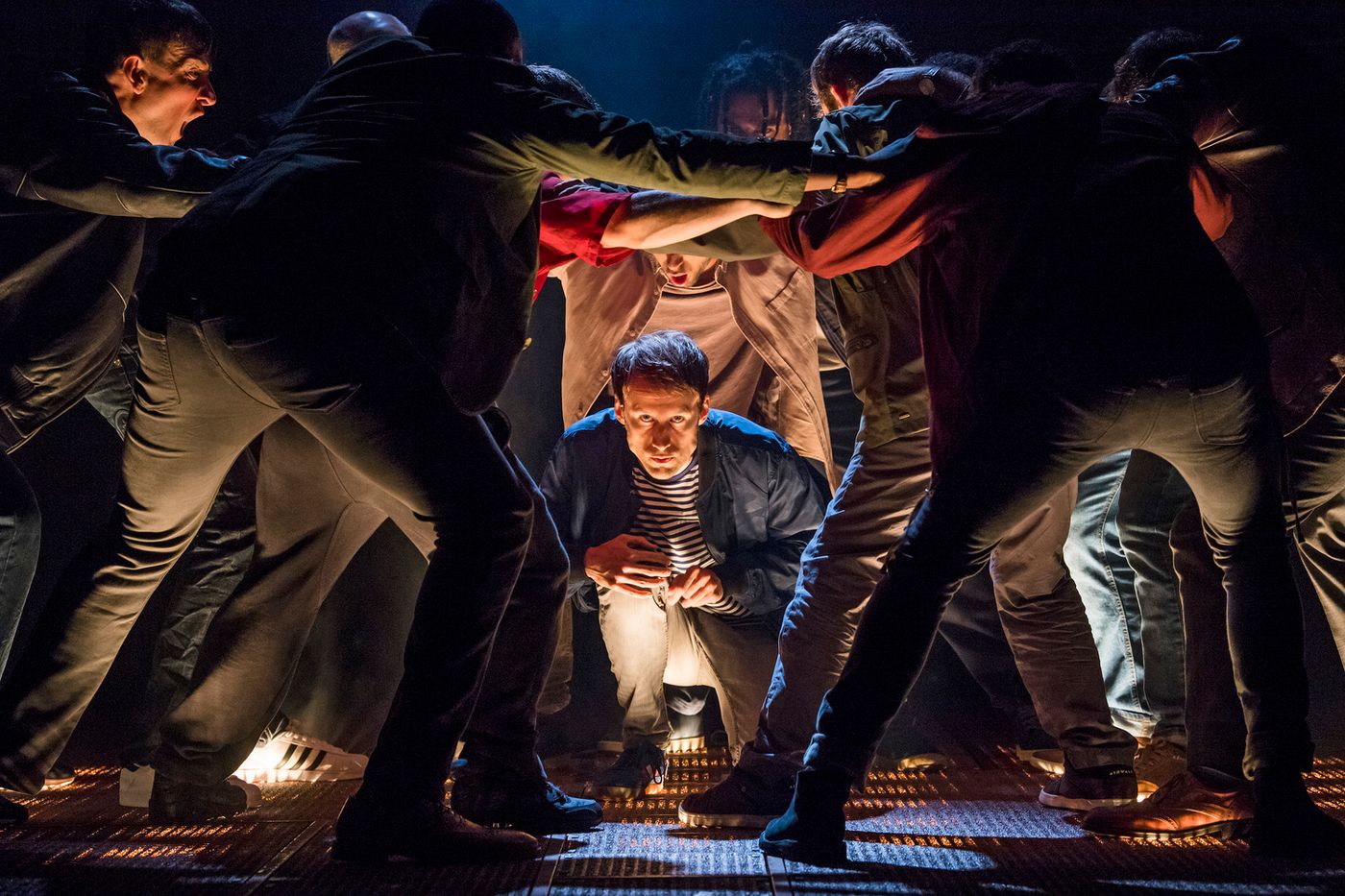Review: FATHERLAND, Lyric Hammersmith
![]() "What's the earliest memory you have of your father?"
"What's the earliest memory you have of your father?"
This is the question, among many, that sets off a process of enquiry into the state of the nation's masculinity and its concerns through the prism of fatherhood in the verbatim play Fatherland. Thrillingly staged, it muscles beyond its documentary origins to excavate beneath the surface of a typically reticent, bloke-y nonchalance with great aplomb.
 Testimonies from a diverse group of men, mostly Northern, are gathered into a piece of ingenious theatre that manages to sidestep the macho posturing that characterises many father-son relationships and requires men to behave in certain ways.
Testimonies from a diverse group of men, mostly Northern, are gathered into a piece of ingenious theatre that manages to sidestep the macho posturing that characterises many father-son relationships and requires men to behave in certain ways.
By doing so, it reveals intimate and celebratory portraits of 21st-century British manhood that are by turns tender, defiant, poignant, horrifying, funny and monumental in scope.
Fatherland is a collage of words, music and movement, and the collaborative creation of director-choreographer and co-founder of physical theatre company Frantic Assembly Scott Graham, musician Karl Hyde of Underworld and playwright Simon Stephens.
Predicated on the premise that men aren't very good at talking about their feelings (there is a heartbreaking sequence in which Daniel, played by David Judge, sings about how his father never told him he loved him), the show features joyful dads, menacing dads, absent dads, single fathers, alcoholic fathers, surrogate fathers, and fathers who have died in the saddest of circumstances.
The co-creators travelled to their home towns of Stockport, Kidderminster and Corby (places they left behind a long time ago for the bright lights of London) to collect stories from their own fathers and friends, and are on the stage the whole time in the form of their actor counterparts.
This provides a catalyst for the co-creators to seamlessly address artistic integrity in the shape of interviewee Luke (Craig Stein), who interrogates the artistic conscience in the verbatim theatre-making process and thereby adds another layer to the action playing out on stage.
This in turn lends the production a deeply personal and meta-textual tone. The co-creators don't shirk from telling their own father-son stories, and in one amusing and beautifully realised scene, Hyde's father - played by Neil McCaul - claims that his son wasn't a "pretty child" and then flies above everyone's heads tethered to a harness as he sings about his joy at seeing his son on stage.
Fatherland premiered at Manchester International Festival in 2017 and was performed in the round at the Royal Exchange Theatre. In transferring to the proscenium arch format of Lyric Hammersmith auditorium as part of the LIFT 2018 programme, the show hasn't lost any of its emotional thrust.
Moments of acute emotional intensity, such as Mel - fireman and son of a fireman's (Michael Begley) story of an old man left alone to melt in his flat - are presented as music and movement set-pieces that make fantastic use of Jon Bausor's revolving metal platform and Jon Clark's beautiful and mood precise lighting design. This suits and counterpoints these stories of ordinary men told in their own words, turning them into something transcendental.
Hyde's music also contributes largely to this effect, invoking the excitement of heartbeats, football chants and soaring chorals in a wall of sound that encloses the audience fully when a Chorus of Others, men in all kinds of guises and ages, flood into the stalls and balconies of the auditorium to join in on the communal singing taking place on stage.
Although women are largely absent from this production - we only get to hear about them as wives, daughters or mothers of male characters - this doesn't detract from proceedings, and may in fact aid this succinct, celebratory and beautifully realised exploration of the softer side of men.
Fatherland at Lyric Hammersmith until 23 June
Picture credit: Tristram Kenton
Reader Reviews
Powered by
|
Videos

